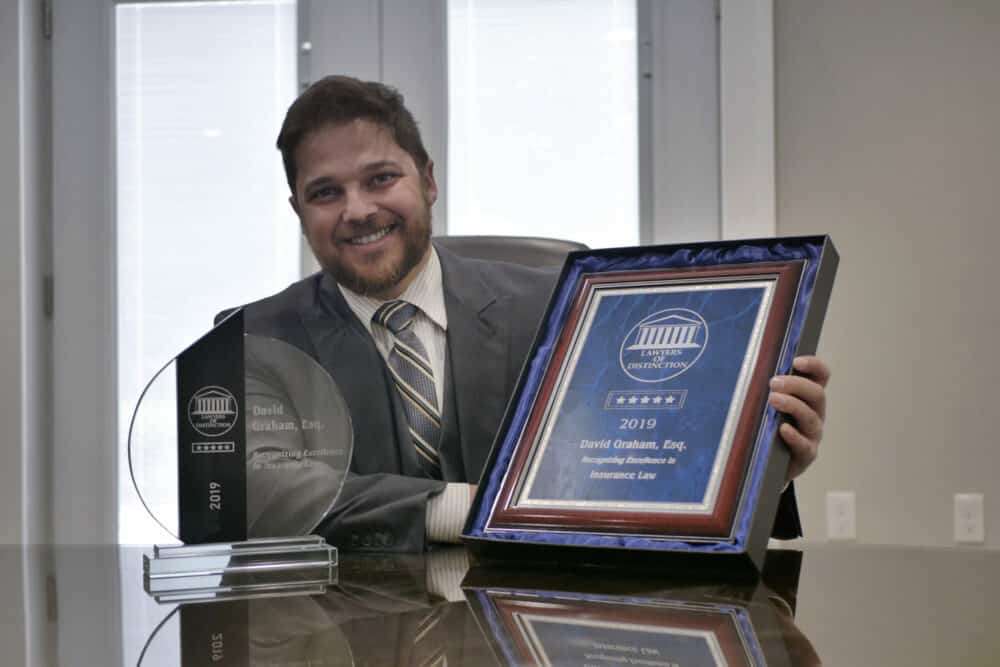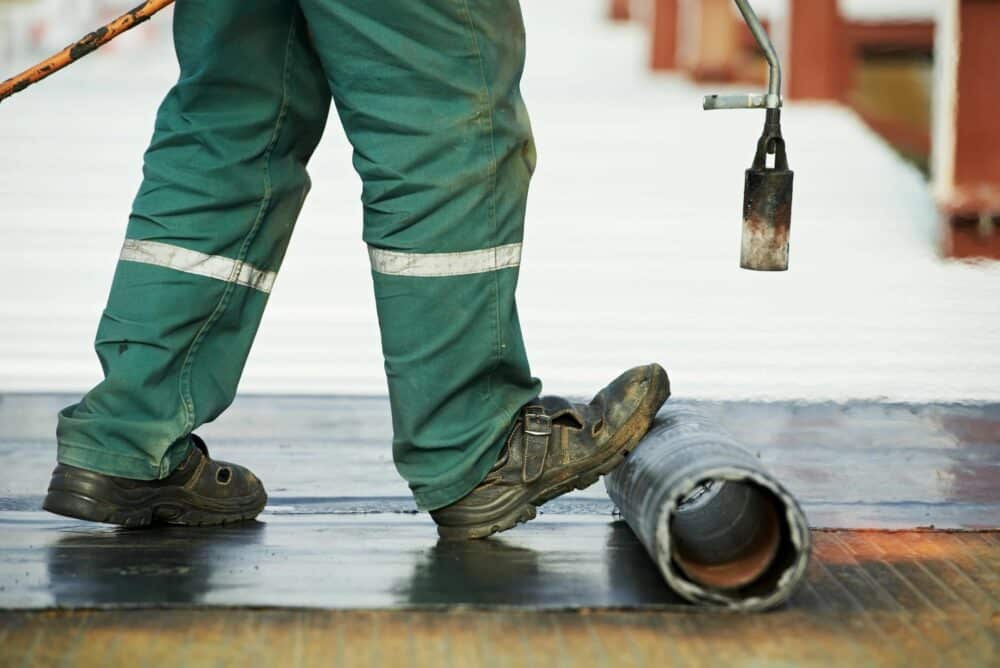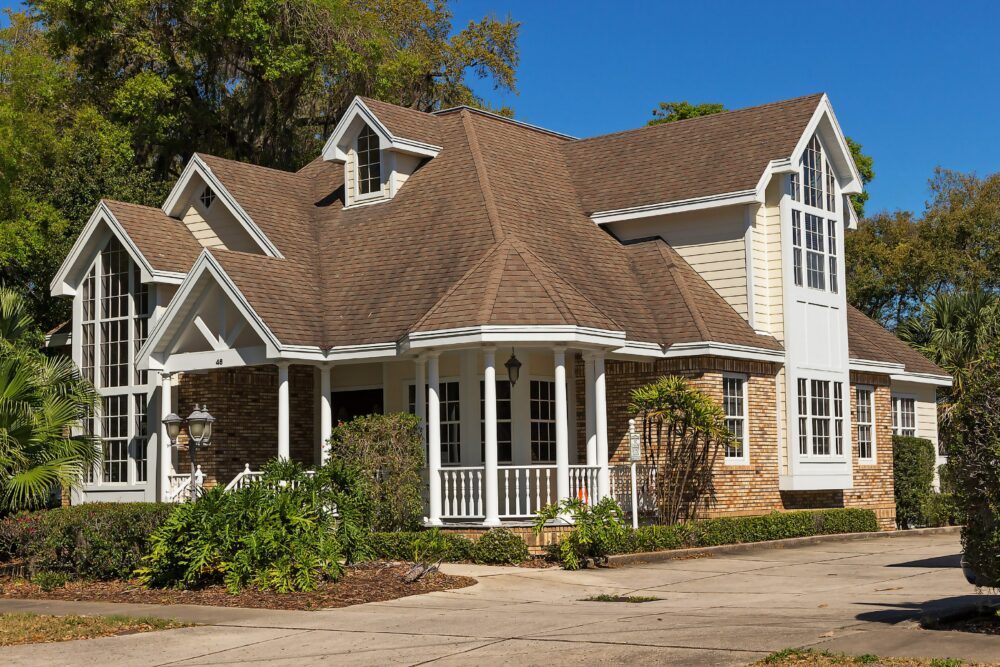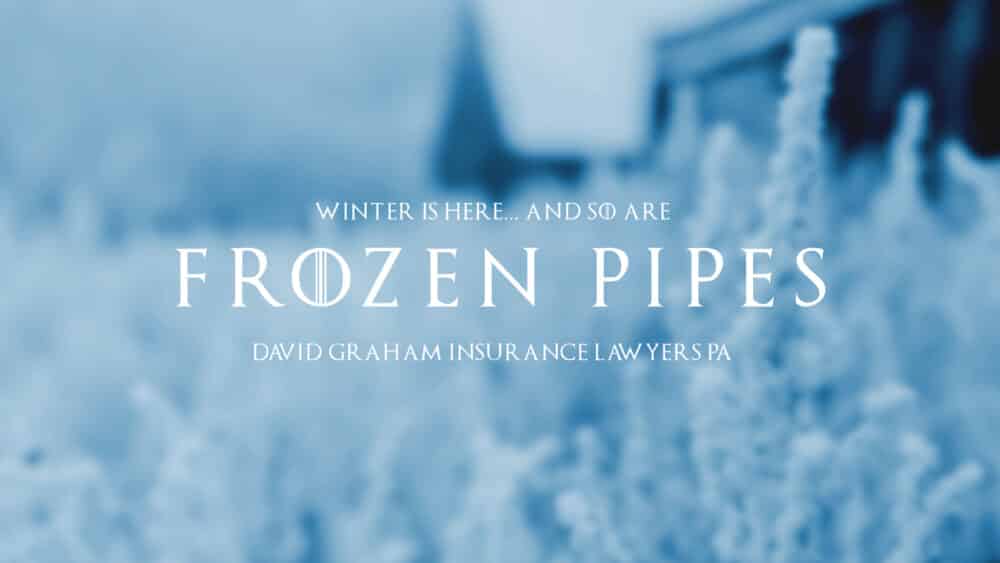
How to prevent freezing pipes
In Florida, we don’t get as much cold weather as others do in other parts of the country or world. Most of us who live here in Florida live here because we like the warm weather. We joke about palm trees and wearing shorts and flip flops in December, spending the holidays on the beach and having only one day of Winter. We tease our friends and family in colder climates about our warm weather.
Also, because we are accustomed to the warmer weather, we tend not to spend as much time preparing our homes for Winter as those in colder, more northern climates are accustomed to spending.
But even here in Florida, we do have some cold nights. I was reminded of this a short time ago when a beep from my cell phone announced that there is a freeze warning in effect for tonight. This means that temperatures could get cold enough to cause your water pipes to freeze, and in some cases, burst causing water damage to your home.
Just like the Night’s Watch protects the seven kingdoms from the freeze, here are 10 tips to prevent your pipes from freezing causing damage in your home:
1) Disconnect garden hoses
You should disconnect and drain all your gardening hoses and install covers on all of your outside faucets. Do not allow water to remain trapped and suseptible to freezing.
2) Winterize your swimming pool
For this step, you should consider hiring a professional who deals with swimming pools. There are several steps involved with winterizing your swimming pool which includes balancing the pH level, draining pool equipment, lowering the water level of your pool, winterize plumbing to and from the pool, covering your pool, and more. It’s best to leave this to a professional if you are not accustomed to working with pools, especially during cold winters.
3) Regulate home temperature
Keep the temperature in your home at 68 degrees or higher even if you are going to be home from your home for an extended period of time. This will also help you keep you your pipes from freezing.
4) Open cabinet doors
Share some of that precious heat in your home with your kitchen and bathroom sinks. You can do this by opening the cabinet doors below your kitchen and bathroom sinks to expose the piping to the heat circulating in your home.
5) Wrapping pipes
Wrap pipes closest to exterior walls and in crawl spaces with pipe insulation or with heating tape. In a pinch, even wrapping pipes in a newspaper can provide some degree of insulation in areas that do not have frequent or prolonged freezes.
6) Close windows
If you have any open windows near water pipes, you want to keep those closed so the cold air doesn’t make contact with your pipes and cause freezing. The same goes for your open-air vents. Cover or close your open-air vents.
7) Basements
If you have a basement, heat your basement and consider weather sealing your windows.
8) Insulation
Insulate the outside walls and unheated areas of your home.
9) Dripping water
Allow water to drip from a faucet served by exposed pipes. Running even a trickle of water through pipes can help prevent them from freezing.
10) Water valves
If you plan to be away from home for an extended period of time, shut off the water supply valves to your washing machine.
Pipes already frozen?
Dry this “Dragonglass” method to thaw your frozen pipes.
Thawing
The first sign of freezing pipes is reduced water flow from a faucet. If a faucet or pipe freezes, you can thaw it by heating water on the stove, soaking towels in the hot water and wrapping them around the cold section so the pipes or by using a hairdryer. (CAUTION: Do not operate a hairdryer around standing water.) Make sure the faucet is turned on so that the melted water can drip out and start by thawing the part of the pipe closest to the faucet.
Pipe burst
If a pipe does burst, shut off the main water valve. If the break is in a hot water pipe, close the valve on top of the water heater.
Call a professional
Call a plumber and a water mitigation company, if necessary. Most homeowner’s insurance policies require that you make reasonable repairs to prevent further damage or loss to your property and will even pay for these costly repairs as long as the damage was caused by a covered peril and the costs are reasonable.
Insurance policy
Review your insurance policy and if you have any concerns regarding the coverage afforded by your insurance policy, consult an attorney experienced in the area of homeowner’s property insurance claims and insurance coverage disputes.
Call a lawyer
If you have questions about your insurance coverage or need help with your insurance coverage dispute, please contact us for a free no-obligation consultation.












